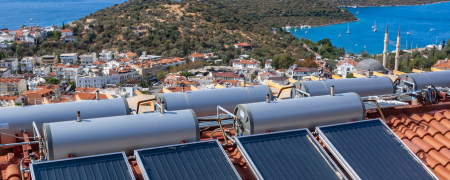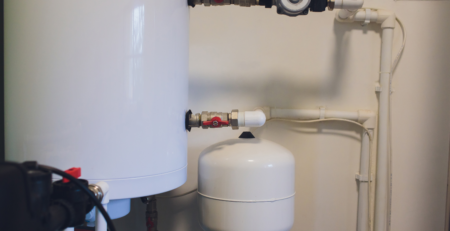Tank Water Heaters vs. Tankless: Making the Right Choice
The decision between a traditional tank water heater and a tankless water heater is a crucial one when it comes to ensuring your home has a reliable hot water supply. In this comprehensive guide, we will explore the merits of both options to help you make an informed decision based on your specific needs and preferences.
Understanding Tank Water Heaters
Tank water heaters, also known as storage water heaters, have been a standard choice for decades. These appliances store and heat water within a large insulated tank, ensuring a ready supply of hot water at all times.
How They Work
The operation of tank water heaters is straightforward:
- Water Storage: Cold water enters the tank through an inlet pipe.
- Heating Process: Inside the tank, a heating element or gas burner heats the water to the desired temperature, typically around 120°F (49°C).
- Ready for Use: The heated water remains in the tank until you turn on a faucet or appliance, at which point it is drawn from the tank and replaced with cold water.
Advantages of Tank Water Heaters
Tank water heaters offer several advantages:
- Reliable Hot Water: With a tank water heater, you have a continuous supply of hot water available, making them ideal for households with high hot water demands.
- Cost-Effective: They are typically more affordable upfront compared to tankless alternatives, making them a budget-friendly choice.
- Simple Installation: The installation of tank water heaters is straightforward, which can save you time and money on installation costs.
- Longevity: With proper maintenance, tank water heaters can last for many years, providing reliable hot water for your home.
Understanding Tankless Water Heaters
Tankless water heaters, also known as on-demand water heaters, have gained popularity in recent years due to their energy efficiency and space-saving design. Unlike tank water heaters, they do not store hot water but instead, heat it on the spot as you need it.
How They Work
The operation of tankless water heaters is different from tank-based systems:
- Water Flow: When you turn on a hot water tap or appliance, cold water flows into the tankless unit.
- Heating Process: Inside the unit, powerful heating elements or a gas burner rapidly heat the incoming cold water, providing hot water on demand.
- No Storage: Tankless units do not store hot water; instead, they continuously heat water as long as there is a demand, providing hot water for as long as you need it.
Advantages of Tankless Water Heaters
Tankless water heaters offer several compelling advantages:
- Energy Efficiency: They only heat water when you use it, eliminating standby energy losses associated with traditional tank water heaters, potentially resulting in energy savings.
- Space-Saving: Their compact design saves valuable space in your home, making them an excellent choice for smaller living spaces.
- Endless Hot Water: Tankless units provide hot water continuously, ensuring you never run out during extended showers or appliance use.
- Longevity: With proper maintenance, tankless water heaters can have a long lifespan, providing reliable hot water for years.
Making the Right Choice
The choice between a tank water heater and a tankless water heater ultimately depends on your specific requirements and preferences. Consider factors such as your household size, hot water usage patterns, available space, and budget when making your decision.
Both types of water heaters have their merits, and the right choice will ensure you have a consistent supply of hot water that meets your needs.




Comment (1)
[…] require fuel storage or complex venting systems, making the installation process quicker and more cost-effective. Maintenance is minimal, primarily consisting of occasional checks and cleaning. This ease of […]